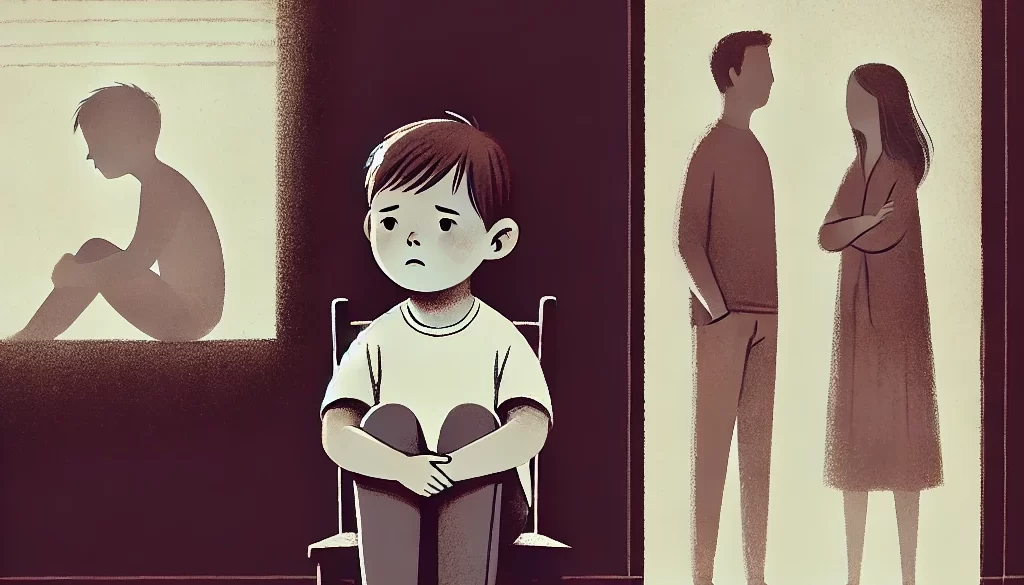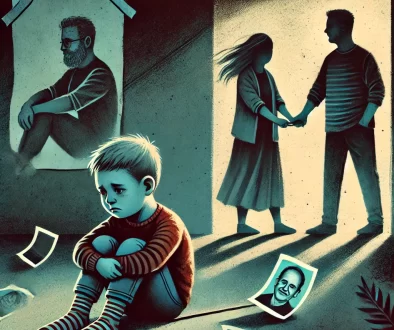The Impact of Parental Alienation on Children: Emotional and Psychological Consequences
Parental alienation, the manipulation of a child to reject one parent in favor of the other, has far-reaching consequences for children. While the immediate effects may include strained relationships and loyalty conflicts, the long-term emotional and psychological impact is often profound. A 2020 study published in Current Psychology highlights how children subjected to parental alienation are at greater risk for mental health challenges, including depression, anxiety, low self-esteem, and difficulty forming healthy relationships.
The Emotional Toll of Parental Alienation
Children caught in the crossfire of parental alienation face intense emotional stress. They are often manipulated into rejecting a parent, a process that forces them to navigate conflicting loyalties and unresolved guilt. This pressure can lead to severe emotional effects, including:
1. Depression
- Alienated children frequently feel sadness and hopelessness, stemming from the loss of a meaningful relationship with the targeted parent.
- The guilt of rejecting one parent, even under manipulation, can weigh heavily on their mental health, contributing to feelings of worthlessness.
2. Anxiety
- The constant fear of upsetting the alienating parent or violating their expectations can cause chronic anxiety.
- Alienated children may develop heightened sensitivity to conflict, worrying about saying or doing the wrong thing in familial interactions.
3. Low Self-Esteem
- Parental alienation undermines a child’s sense of stability and self-worth.
- Children may internalize the alienating parent’s negative portrayal of the targeted parent, feeling unworthy of love and support themselves.
Long-Term Psychological Challenges
The emotional damage caused by parental alienation does not fade easily. Many alienated children carry the scars of manipulation into adulthood, facing challenges such as:
1. Difficulty Forming Healthy Relationships
- Trust issues: Having experienced manipulation and conflict between their parents, alienated children often struggle to trust others.
- Fear of abandonment: The loss of a close relationship with one parent can lead to anxiety about being abandoned in other relationships.
- Unhealthy patterns: Alienated children may replicate the dynamics of their childhood in their adult relationships, either becoming overly dependent or overly distant.
2. Increased Risk of Mental Health Disorders
- Substance abuse: The emotional pain of alienation can drive children toward unhealthy coping mechanisms, such as drugs or alcohol.
- Eating disorders: Alienated children are more likely to develop eating disorders, using food as a way to assert control or deal with stress.
- Feelings of abandonment: The absence of a connection with the targeted parent often creates a sense of being unwanted or unloved, leading to pervasive loneliness.
What the Research Says
The Current Psychology study from 2020 offers a sobering glimpse into the widespread effects of parental alienation. Its findings emphasize:
- High prevalence of mental health issues: Alienated children are disproportionately affected by psychological disorders, often requiring professional intervention to heal.
- Lifelong impact: The effects of alienation are not confined to childhood; they shape the child’s worldview, relationships, and emotional resilience well into adulthood.
How to Mitigate the Impact of Parental Alienation
While parental alienation causes significant harm, early intervention and support can help mitigate its effects. Steps to support alienated children include:
1. Reunification Therapy
- Specialized therapy can help rebuild the child’s relationship with the alienated parent.
- Therapists work to challenge the false beliefs instilled by the alienating parent and foster emotional healing.
2. Stable and Loving Environments
- Providing consistency, care, and unconditional love can counteract the emotional damage caused by alienation.
- Maintaining a calm, positive presence reassures the child of their worth and security.
3. Professional Counseling
- Both the child and the targeted parent can benefit from therapy to process the trauma of alienation.
- Counseling provides tools to navigate the complex emotions and rebuild trust.
4. Advocacy in Legal Settings
- Ensuring that courts and legal professionals recognize parental alienation as a form of emotional abuse is crucial for protecting children.
- Custody arrangements that prioritize the child’s emotional well-being can prevent further manipulation.
Conclusion
The emotional and psychological impact of parental alienation on children is devastating. From depression and anxiety to difficulties in forming relationships and heightened risks of mental health disorders, the harm often lasts well into adulthood. Addressing this issue requires a concerted effort from parents, mental health professionals, and legal systems to recognize the signs, provide support, and foster healing. Protecting children from the effects of parental alienation is essential to their well-being and their ability to lead fulfilling lives.
I’m Randy Morano—a father, author, and staunch advocate for parental alienation awareness. My journey through the depths of parental alienation has transformed me into a passionate advocate, dedicated to shedding light on this overlooked form of emotional abuse.
As a survivor, I understand the profound impact of parental alienation firsthand. Through my writing and advocacy efforts, I aim to raise awareness, empower others, and provide support to families in need. Join me in the fight for change and hope.



